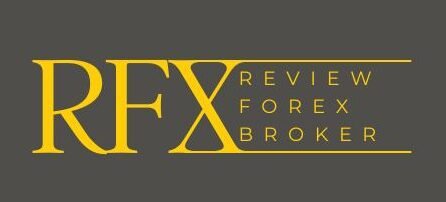Forex trading involves various fees and charges that can impact your overall trading costs and profitability. To make informed trading decisions and manage costs effectively, it’s essential to understand the different types of fees associated with forex brokers. This guide breaks down the common fees and charges you might encounter and how to evaluate them when choosing a forex broker.
- Spread
Definition:
The spread is the difference between the bid (sell) price and the ask (buy) price of a currency pair. It represents the cost of trading and is one of the primary ways brokers earn revenue.
Types of Spreads:
Fixed Spread: The spread remains constant regardless of market conditions. It provides predictability but may be higher than variable spreads.
Variable Spread: The spread fluctuates based on market conditions and liquidity. It can be lower during stable market conditions but may widen during periods of high volatility.
How to Evaluate:
Compare Spreads: Look at the typical spreads offered for major and minor currency pairs by different brokers.
Consider Volatility: Variable spreads may widen during volatile market conditions, so consider the potential impact on your trading costs.
- Commission
Definition:
Some forex brokers charge a commission on each trade in addition to the spread. Commissions are usually a fixed amount per trade or a percentage of the trade size.
Types of Commissions:
Per Trade Commission: A fixed fee charged for each trade executed.
Percentage Commission: A percentage of the total trade volume or value.
How to Evaluate:
Understand Fee Structure: Determine whether the broker charges a per-trade or percentage-based commission.
Calculate Costs: Assess how commissions will affect your overall trading costs, especially if you trade frequently.
- Overnight Swap (Swap Rate)
Definition:
The overnight swap, or swap rate, is the interest paid or received for holding a position overnight. It reflects the difference in interest rates between the two currencies in the pair.
Types of Swaps:
Positive Swap: If you hold a position in a currency pair where the base currency has a higher interest rate than the quote currency, you may receive a positive swap.
Negative Swap: Conversely, if the base currency has a lower interest rate, you may incur a negative swap.
How to Evaluate:
Check Swap Rates: Look at the broker’s swap rates for different currency pairs and understand how they might impact your trades.
Consider Holding Costs: If you plan to hold positions overnight, factor in the potential cost or benefit of swap rates.
- Withdrawal and Deposit Fees
Definition:
Brokers may charge fees for depositing funds into or withdrawing funds from your trading account. These fees vary based on the payment method used.
Types of Fees:
Deposit Fees: Fees charged when adding funds to your account. Some brokers offer free deposits, while others may charge a fee based on the payment method.
Withdrawal Fees: Fees associated with withdrawing funds from your account. Withdrawal fees can vary by method and broker.
How to Evaluate:
Review Fee Structure: Check the broker’s deposit and withdrawal fees for various payment methods.
Consider Payment Methods: Choose a broker with favorable terms for your preferred payment methods.
- Inactivity Fees
Definition:
Inactivity fees are charged if your trading account remains dormant or inactive for a certain period. These fees can apply if you don’t execute trades or log in to your account regularly.
How to Evaluate:
Check Inactivity Policy: Review the broker’s policy on inactivity fees and the period of inactivity that triggers the fee.
Plan Your Trading: If you plan to trade infrequently, choose a broker with minimal or no inactivity fees.
- Currency Conversion Fees
Definition:
Currency conversion fees are charged when trading currencies not denominated in your account’s base currency. These fees cover the cost of converting between currencies.
How to Evaluate:
Understand Conversion Costs: Check if the broker charges a fee for currency conversions and how it impacts your trades.
Consider Base Currency: If you frequently trade currencies not in your account’s base currency, choose a broker with favorable conversion rates.
- Account Maintenance Fees
Definition:
Some brokers charge account maintenance fees for maintaining or managing your trading account. These fees can be charged monthly, quarterly, or annually.
How to Evaluate:
Review Maintenance Fees: Check if the broker charges account maintenance fees and their frequency.
Assess Necessity: Consider whether the benefits of the broker’s services outweigh the account maintenance fees.
- Platform Fees
Definition:
Certain brokers charge fees for accessing their trading platforms or using advanced features and tools.
Types of Platform Fees:
Platform Access Fee: A fee for using the broker’s proprietary trading platform.
Advanced Tool Fees: Charges for accessing premium features or advanced trading tools.
How to Evaluate:
Check Platform Access: Determine if the broker’s platform is included for free or if there are additional charges.
Assess Tools and Features: Evaluate whether the cost of advanced tools and features justifies their benefits for your trading strategy.

